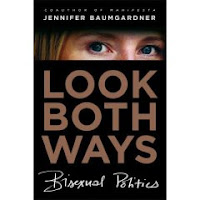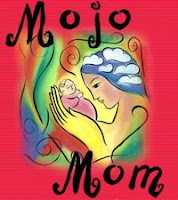I had a blast at the Council on Contemporary Families conference this past weekend. Many of the members of that group — now celebrating its 10th year – are personal heroes. True models of engaged scholarship. And incredibly nice people to boot. Kudos to Stephanie Coontz, Steve Mintz, Josh Coleman, Waldo Johnson, Virginia Rutter, Ashton Applewhite, Barbara Risman, Phil and Carolyn Cowan, and others for making it all come true. (Coverage of the conference – well, sort of – here: in The Washington Times.)
At the conference, CCF released a great new “product”, called “Unconventional Wisdom: New Data, Trends, and Clinical Observations about American Families”. Look past the lengthy title and delve into over 75 well-delivered, highly relevant findings that provide a snapshot of what some of the nation’s leading authorities are thinking about how marriages, families, parenting, and intimate relationships succeed or fail. To wit:
AND BABY MAKES THREE
In a study of 130 couples from wedding until their first babies were three years old, John and Julie Gottman found that 67% of couples had a big drop in relationship happiness and a big increase in hostility in the first 3 years of the baby’s life. In addition, the parents’ hostility during pregnancy was associated with baby’s responsiveness at three months. Based on this, they designed and tested an intervention to help new parents: the workshop reversed the drop in couple happiness and the increasing hostility. They also found a reduction in postpartum depression. At three years old, the babies whose parents had been to a workshop were more advanced in terms of emotional and language development. Part of this was due to father’s involvement: the workshops improved father’s involvement.
John Gottman and Julie Gottman, Co-Directors, The Gottman Institute (Seattle, WA). Contact: johng@gottman.com
WHEN COUPLES DISSOLVE: HOW THEY FARE
What happens when couples dissolve their relationship? Both men and women experience income losses, but women experience a sharper drop. Married men whose relationships dissolve see an average decline of 22.3 percent in their household incomes, while married women see an average decline of 58.3 percent. The income loss for men and women in cohabiting relationships is less — 10 percent for men and 33.1 percent for women. But because cohabitors have lower incomes in the first place, their income losses are especially likely to leave them in precarious economic circumstances. Only 9 percent of formerly married men are poor after dissolution, while nearly 20% of cohabiting men are living in poverty after their break-ups. And most vulnerable of all are cohabiting African-American and Hispanic women whose relationships dissolve.
Pamela J. Smock, Associate Vice President for Research – Social Sciences & Humanities, Professor of Sociology & Women’s Studies, and Research Professor, Institute for Social Research, University of Michigan. pjsmock@umich.edu; Phone: 734.763.2264
GOOD REASONS FOR MEN TO DO HOUSEWORK: HAPPIER MARRIAGES, BETTER KIDS
Numerous studies reveal the benefits to a relationship and family when a father participates in housework. Women are more prone to depression and to fantasize about divorce when they do a disproportionate share of the housework. Wives are more sexually interested in husbands who do more housework. And children appear to be better socially adjusted when they regularly participate in doing chores with Dad. In my clinical experience, men do more in homes when they have stronger egalitarian attitudes, and when their wives are willing to negotiate standards, act assertively, prioritize the marital friendship, and avoid gatekeeping.
Joshua Coleman, Author, Psychologist, Training Faculty San Francisco Psychotherapy Research Group. www.drjoshuacoleman.com; 510-547-6500
DO MOTHERS STAY HOME WHEN THEIR HUSBANDS EARN GOOD MONEY?
People often think that women whose husbands make “good money†stay home when they have children. But it takes being married to men in the top 5th percentile (men earning more than $120,000 a year) to seriously reduce women’s employment — only 54 percent of mothers with husbands with these top earnings worked for pay. Among married women whose husbands were in the top 25 to 5 percent of all earners (making salaries ranging from about $60,000 to $120,000), 72 percent of mothers worked outside the home, almost identical to the 71 percent work participation figures among married moms whose husbands’ earnings were in the lowest 25 percent of men’s wages. Women’s own education has a much bigger effect on her likelihood of working than her husband’s earnings; highly-educated women who can earn a lot typically don’t become stay-at-home mothers.
Paula England, Professor of Sociology, StanfordUniversity. 650-723-4912; pengland@stanford.edu
RAUNCH CULTURE ENTERS THE THERAPY OFFICE
Since 2000, my clinical practice has seen a dramatic rise in the number of girls and young women (aged 13 to 21) who’ve found themselves in the midst of some kind of overwhelming sexual experience, usually involving some kind of exhibitionism or trading sex for favors/social standing. The transition in this country towards “porn sex” as normative sexuality is causing intense confusion among many middle-and high-school girls about whether sexiness and sexual pleasure have anything to do with each other, or with the notion of personal choice.
Michael Simon, MFT, Director of Counseling & Student Support, BentleySchool, Lafayette, California. 510-433-295; Michael@PracticalHelpForParents.com
DOES DIVORCE MAKE YOU HAPPY?
Our research shows that it can make you less depressed—if you are in a distressed marriage. When we compare men and women in distressed marriages with men and women who have divorced and left their distressed marriages, it turns out that the people who stay are more likely to be depressed than those who leave in the short run. Over time, some of the relief from divorcing from a distressed marriage wears off, perhaps due to the challenges of being single and taking care of a family. Still, even after the passage of time, people who leave are a little less likely to be depressed than people who stay in a distressed marriage.
Virginia Rutter, Assistant Professor of Sociology, Framingham State College.
vrutter@gmail.com; 508-626-4863
And, of course,
THE ONLY CHILD DISCONNECT
Single-child families are the fastest-growing families in this country and in most industrialized Western European countries as well. Over the past 20 years, the percentage of women nationwide who have one child has more than doubled, from 10% to 23%. In 2003, single-child families in the U.S. outnumbered two-child families – 20% vs. 18%.
Still, according to a 2004 Gallup poll, only 3% of Americans think a single-child family is the ideal family size. There’s a real disconnect between the perception of the ideal and the reality of what people are doing.
Deborah Siegel, Ph.D., Author / Consultant, Fellow, Woodhull Institute.
www.deborahsiegel.net









